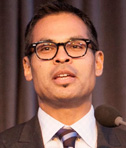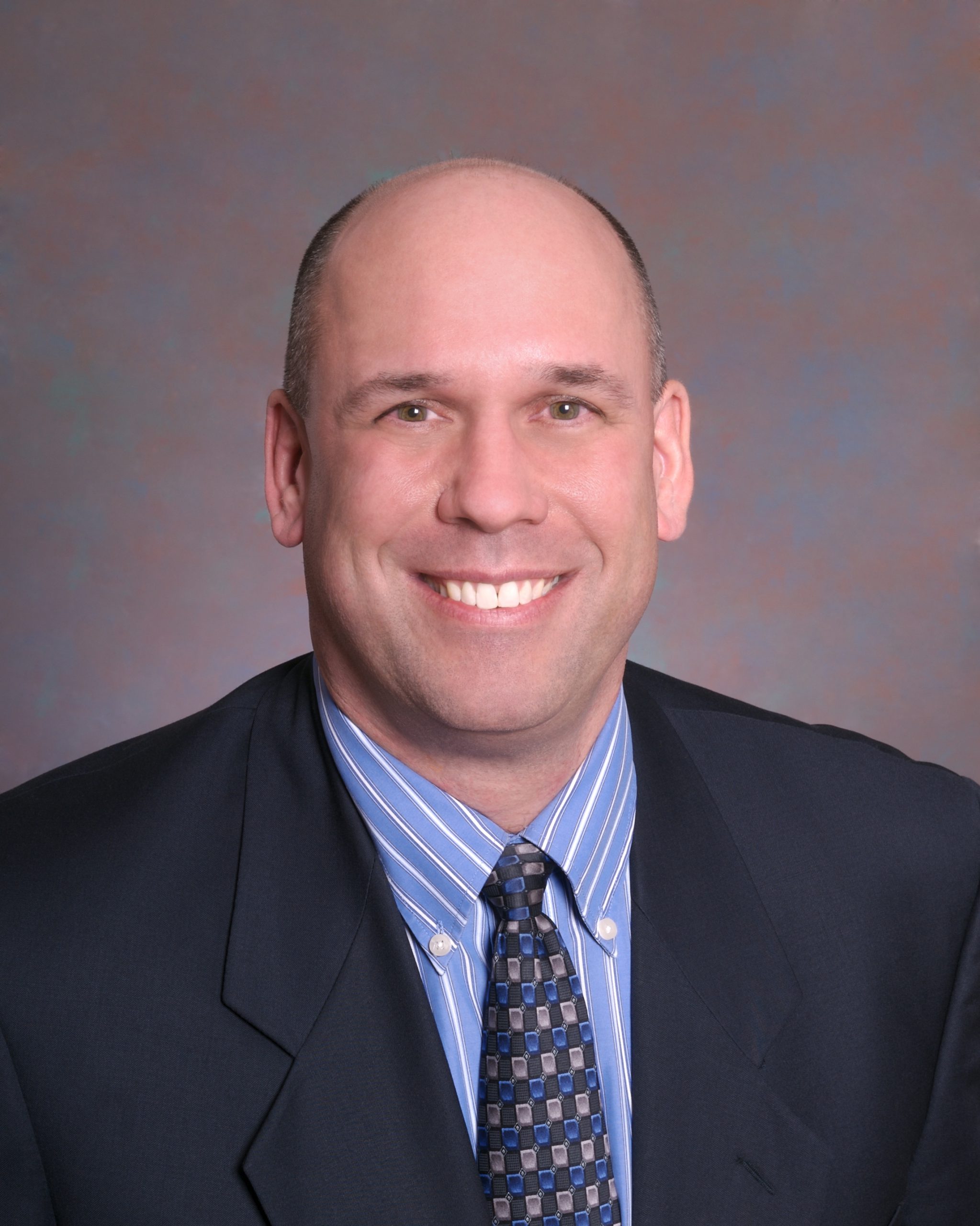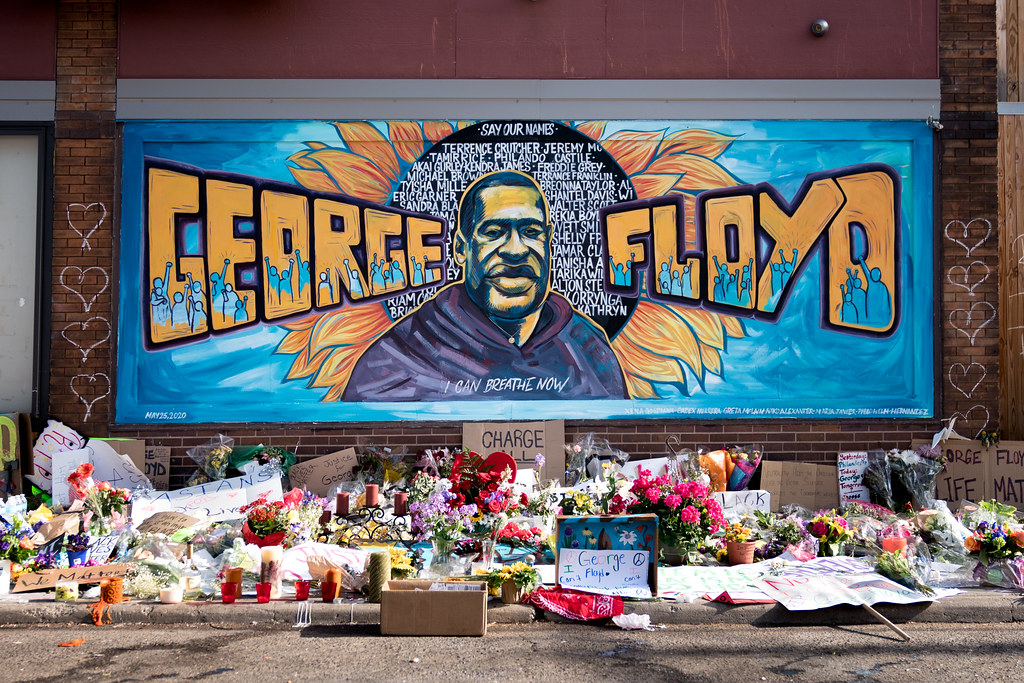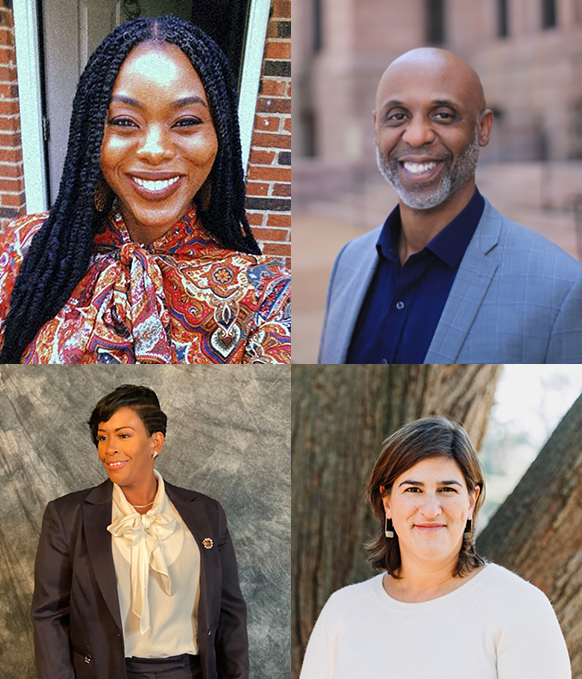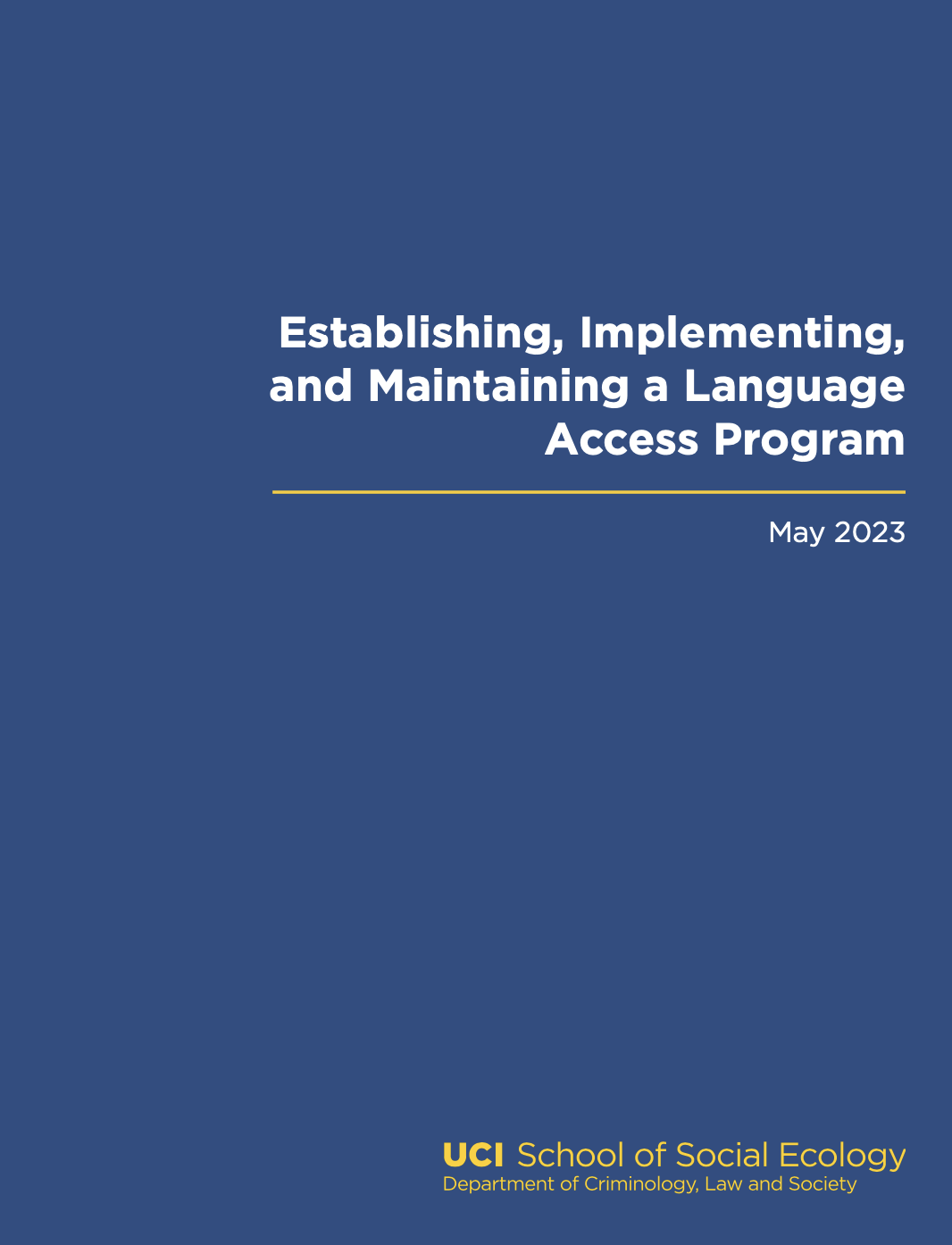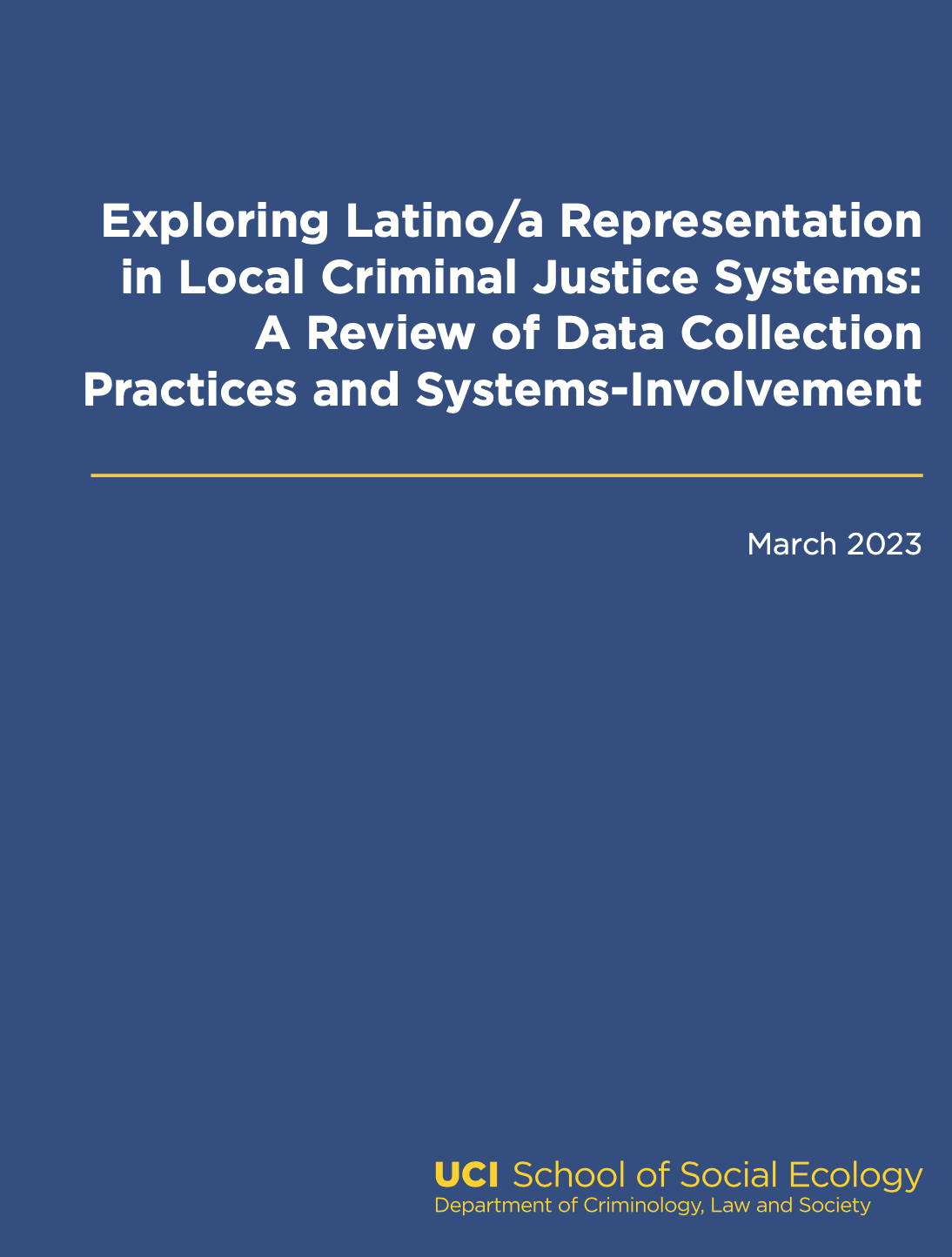Data Analysis Jail Populations Racial Disparities June 12, 2023
Three new policy briefs have major implications for Latinos in the justice system, including in American jails, based on data and research from sites supported by the John D. and Catherine T. MacArthur Foundation’s Safety and Justice Challenge. The briefs explore how to better track Latino involvement in criminal justice systems, the role of language accessibility in criminal justice systems, and the value of adopting a nuanced approach to immigration enforcement policies at the local level.
A Review of Data Collection Practices and Systems-Involvement
The first brief, “Exploring Latino/a Representation in Local Criminal Justice Systems,” is a review of data collection practices and systems-involvement in local criminal justice systems, with a focus on Latino/a representation. It examines how local agencies in participating sites capture racial and ethnicity information. It also explores the involvement of Latinos/as in local criminal justice systems, including racial and ethnic disparities at the front door, in pretrial outcomes, and in criminal case outcomes. Its findings shed light on the development of much-needed data-driven reforms to the system to further racial equity.
Today, nearly one in five people in the U.S. self-identify as being of Latino origin. Remarkably, despite the size and diversity of the Latino population in the U.S., we do not know how many Latinos are arrested. That’s because we are still not collecting the data in enough detail.
How Latino and Hispanic ethnicity data is stored in local criminal justice systems is inconsistent and inhibits system-wide understanding of racial and ethnic disparities across local jurisdictions.
Even where fields exist to capture ethnicity information within a database, the data is not always consistently collected for all cases passing through key criminal justice system points. Even where agencies have the capacity to capture Latinos’ ethnicity, low rates of reporting and high proportions of missing data impedes accurate measurement of Latino outcomes.
At the front door to the justice system—arrest and jail booking—Latinos in all four sites—Charleston County, South Carolina; Harris County, Texas; Multnomah County, Oregon; and, Palm Beach County, Florida—make up a smaller proportion of those arrested or booked compared to their countywide population. Conversely, Black and Indigenous individuals were over-represented in arrests and jail bookings, relative to their countywide populations.
Latino and White rates of justice involvement were similar—and in many cases rates of Latino involvement were lower than that of Whites. However, Black individuals—particularly young Black individuals—were subject to substantially elevated rates of arrest, jail booking, and court convictions (and dismissals), demonstrating a considerable concentration of justice system contact for the Black community.
The brief makes several policy recommendations to address these disparities and disproportionalities. They include improving data collection practices, developing a standard set of categories to facilitate clear standards for data sharing and data translation between systems, encouraging regular examination of outcomes by race, ethnicity, and age group, and promoting community engagement and collaboration to identify ways to reflect the Latino/a population more accurately in local justice systems.
Establishing, Implementing, and Maintaining a Language Access Program
The second brief focuses on language accessibility in criminal justice systems, specifically focusing on the SJC. Language barriers can negatively impact legal representation and outcomes for non-English speakers in criminal cases.
Title VI of the Civil Rights Act of 1964 requires federally funded agencies to provide meaningful access to their programs and activities. This brief surveyed several local criminal justice systems and discovered significant gaps in the availability of language services for those who are LEP despite the provisions of Title VI. The report finds that while organizations and agencies within local criminal justice systems often receive federal funding, and are therefore mandated to provide language services, specific practices and the extent to which services are made available in these systems remains relatively unknown.
Key findings from the report include:
- Data around language needs and services is inconsistently collected. Less than half of respondents reported collecting data on how frequently language services are utilized, and about half reported making efforts to address language access complaints beyond a case-by-case basis (e.g., regular reviews of complaints and outreach to specific language minority groups).
- Despite the existence of bilingual and/or multilingual staff, most are not formally equipped to provide interpretation services. Approximately 94 percent of respondents reported that they have bilingual and/or multilingual employees. However, less than half of these employees are certified translators, and less than half offer pay differentials to employees who use their language skills on the job.
- Translated content is lacking in digital spaces, written materials, and public signage. Less than half of respondents said their official website contains translated content, and less than half reported that public notices are translated into a language other than English. Despite more than half of all respondents reporting that they have translated materials, there are some languages for which no written translation is provided by any of the respondents.
The report recommends that every individual who meets local criminal justice systems has access to services in their primary language. It makes the following policy recommendations:
- Facilitate the hiring and training of bilingual and/or multilingual staff and interpreters and prioritize pay differentials for staff that are certified to use their language skills on the job.
- Consistently collect and analyze data to better understand the language needs of local populations and assess whether the language capacities of the organization are sufficient to meet the identified language needs.
- Ensure that all written content is translated, or can be quickly translated if needed.
It is important to note that language accessibility in criminal justice systems is not only about providing interpreters. It also involves the ability of individuals who are deaf or hard of hearing and those who have cognitive disabilities (e.g., intellectual disability) to communicate effectively with criminal justice system actors. In addition, individuals must be able to understand the legal process and make informed decisions about whether they want an attorney or to represent themselves without being coerced by others.
Immigration Enforcement Policies and Detainer Trends in SJC Sites
The third policy brief outlines the landscape of immigration policies across four SJC sites— Harris County, Texas, Los Angeles County, California, New York City, New York, and Cook County, Illinois—and illustrates how jail populations intersect with immigration enforcement policy.
Key findings include:
- Specific attention on immigration is required to address racial inequities in local justice systems. The findings indicate that pursuing policies designed to lower jail incarceration and improve racial equity do not by default include an assessment of how immigration policies impact the system involvement of Latinos/as and undocumented persons.
- Jurisdictions restrict and permit collaboration with US Immigration and Customs Enforcement (ICE) to varying and inconsistent degrees. While 70 percent of sites enacted limitations on some type of immigration enforcement cooperation, nearly 78 percent of jurisdictions lack a formal policy on ICE detention contracts; the absence of clear policy may permit further collaboration.
- A majority of jurisdictions lack formal policies regarding the use of state and local resources to enforce federal immigration law. The majority of sites have no formal policy. However, 18 percent of sites restrict the use of funds for immigration enforcement, while 6 percent of sites expressly permit the use of local resources.
The brief includes policy recommendations for SJC sites:
- Restrict the use of state and local resources to execute policies that enforce federal immigration law and contribute to racial disparities.
- Limit local data sharing and collaboration with ICE.
- Limit the outsourcing of local jail beds for immigration detention purposes.
- Identify how local immigration policies are impacting the system involvement of Latino/as and undocumented populations
Nuanced criminal justice reform is needed around immigration policies at the local level. Future research should examine the intersection of immigration policies and the policing of Latino communities to offer insight into the treatment and justice system outcomes of Latinos/as and undocumented immigrants.
Collectively, I hope these three policy briefs will form the basis for deepening the national conversation about racial equity in the criminal justice system—particularly through a Latino/a lens.

